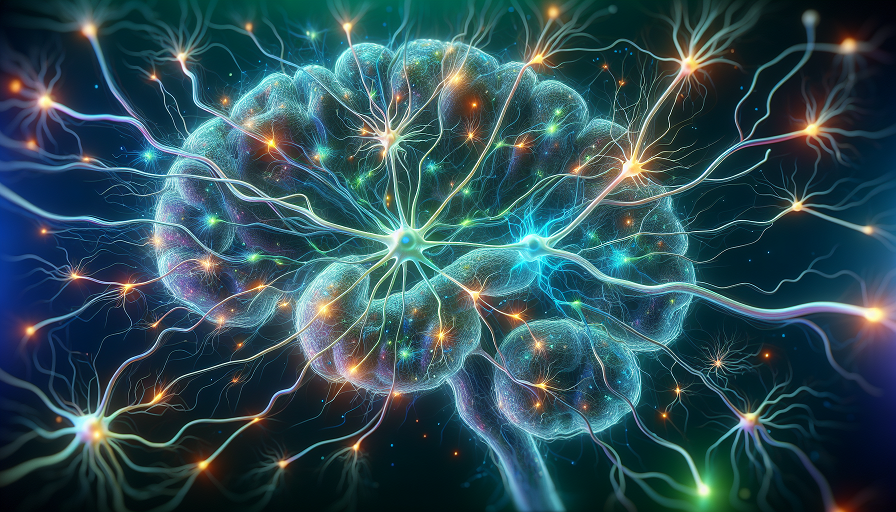
Meditation isn’t just about sitting quietly or achieving a zen-like calm—it’s a practical tool for enhancing how your brain processes and adapts to information. Cognitive flexibility, or the brain’s ability to shift perspectives and adjust to new situations, plays a critical role in problem-solving, decision-making, and learning. Meditation, with its focus on mindfulness and awareness, has been shown to improve this mental agility by rewiring neural pathways and creating a more adaptable mind.
How Meditation Rewires Neural Pathways
Your brain is constantly changing, adapting to experiences, habits, and thoughts—a phenomenon known as neuroplasticity. Meditation taps directly into this process by strengthening the connections between key brain regions. One of its primary targets is the prefrontal cortex, which governs higher-order functions like focus, decision-making, and flexibility in thinking.
When you meditate, you activate the default mode network (DMN), a group of brain regions that lights up during self-referential thought and reflection. Regular meditation has been shown to quiet the DMN when it’s not needed—such as when you’re trying to focus on a task—allowing other brain areas to take the lead. This improves your ability to shift gears mentally, whether you’re brainstorming solutions or switching between projects.
Meditation also increases gray matter density in the hippocampus, a region tied to learning and memory, and the anterior cingulate cortex, which helps regulate attention and emotional responses. By boosting activity and connectivity in these areas, meditation makes it easier to let go of rigid thinking patterns and approach challenges with a fresh perspective.
Interestingly, meditation’s benefits extend beyond mental tasks. It also reduces emotional reactivity by calming the amygdala, the brain’s fear and stress center. This means you’re less likely to feel overwhelmed when faced with complex problems, giving you the mental clarity to tackle them effectively.
Studies Showing Improved Problem-Solving Skills
Scientific research supports the idea that meditation enhances cognitive flexibility and problem-solving abilities. A study published in Psychological Science explored the effects of mindfulness meditation on creative problem-solving. Participants who practiced brief mindfulness sessions performed significantly better on tests requiring novel solutions, such as finding multiple uses for a single object. The researchers concluded that meditation helps break habitual thought patterns, allowing for more innovative thinking.
Another study in NeuroImage examined how meditation influences decision-making under stress. Participants who meditated regularly showed improved performance on tasks requiring quick mental shifts, even when faced with time pressure or emotional distractions. Brain scans revealed stronger connections between the prefrontal cortex and other cognitive hubs, suggesting that meditation primes the brain for adaptability.
Long-term meditators have also been shown to excel at handling ambiguity and uncertainty. Research in Frontiers in Psychology found that individuals with a consistent meditation practice demonstrated greater flexibility when faced with incomplete or conflicting information. Their ability to weigh options and adjust strategies was linked to enhanced activity in the anterior cingulate cortex, highlighting meditation’s role in fostering mental resilience.
For those interested in reaping these cognitive benefits, here are some practical ways to start:
- Begin with Short Sessions: Start with 5–10 minutes of meditation daily to build the habit. Gradually increase the duration as you become more comfortable.
- Focus on Breath Awareness: Simple breathing exercises help anchor your mind and improve focus.
- Practice Mindfulness: Pay attention to your thoughts without judgment, observing them as they come and go.
- Use Guided Meditations: Apps like Headspace or Calm offer structured sessions to help you get started.
- Be Consistent: Regular practice is key to rewiring your brain, so aim for daily meditation, even if it’s brief.
Meditation’s ability to rewire neural pathways and enhance cognitive flexibility makes it a powerful tool for improving problem-solving skills. By training your brain to adapt, stay calm under pressure, and think creatively, meditation provides a mental edge that can benefit every aspect of life. Whether you’re solving puzzles or navigating real-world challenges, meditation offers a clear path to a sharper, more agile mind.

